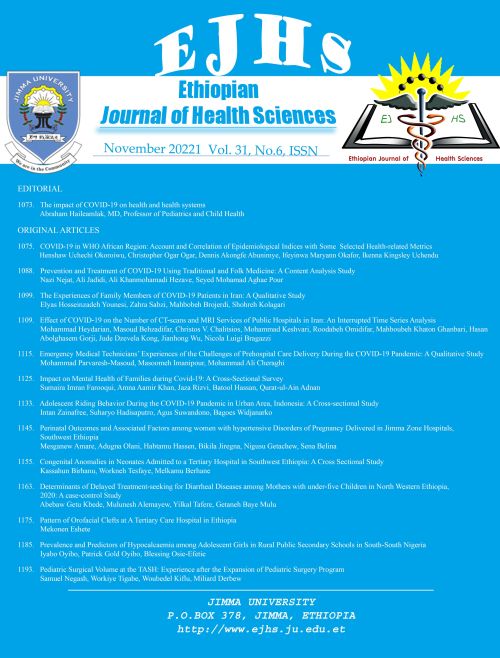Main Article Content
Pneumatization Patterns of the Sphenoid Sinus in Adult Nigerians and Their Clinical Implications
Abstract
BACKGROUND፡ The variant pneumatization patterns of the sphenoid sinus have significant surgical implications due to their associated inconsistent neurovascular relations. This study aimed at evaluating the pneumatization patterns of the sphenoid sinus in adult Nigerians.
METHODS: This was a retrospective study conducted at the Radiology Department of a Tertiary Hospital in Nigeria after obtaining institutional ethical approval. Brain Computed Tomography images of 336 patients (137 females,199 males) aged ≥20 years were studied for the variant pneumatization patterns of the sphenoid sinus. Statistical Package for Social Sciences version 23 was used for data analysis. Chi-square test was used to assess for the association of the variants with gender and side. Pvalue was considered significant at <0.05.
RESULTS: The predominant pneumatization pattern in relation to the seller turcica was the sellar type (181;53.9%) followed by the presellar type (65;19.3%), post-sellar (62;18.5%), and lastly the conchal type (28;8.3%). The most prevalent clival recess was the subdorsal type (25;7.4%) followed by the dorsal (18;5.4%), combined (7;2.1%), and lastly occipital (3;0.9%). The frequency of pneumatized anterior clinoid process, greater wing of sphenoid and pterygoid process was 76;22.6%, 60;17.9% and 141;42% respectively and these showed significant side difference (P=0.001 each). None of the pneumatization patterns showed a significant gender difference. Sphenoid sinus agenesis was not observed.
CONCLUSION: The pneumatization patterns in our study varied from the findings in previous Nigerian studies and other populations. There is therefore the need for preoperative evaluation before endoscopic transsphenoidal surgical procedures.




